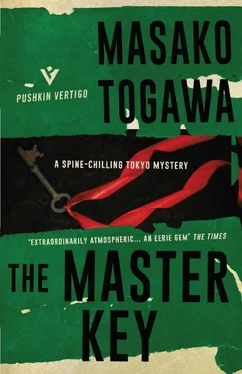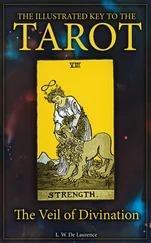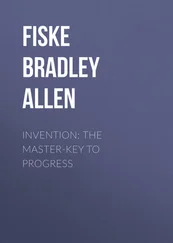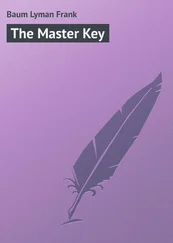She had become quite convinced of the propriety of her actions in stealing the Guarnerius. She felt that she had been in the right, and suppressed the guilty feelings in her innermost heart by assuring herself that should the truth ever come out her defence would be artistic justification. Yet deep down she knew better. She only had to close her eyes to see again those events of thirty years before when she had acquired the violin.
Her respected teacher, André Dore, was on the brink of his departure from Japan. His final recitals were due to commence on the next day, but in spite of that he was giving Suwa her usual private lesson. She had begun to entertain sentimental feelings about him because of her admiration for him as an artist. And as she pictured once again his deep-set gentle eyes and his finely drawn high-bridged nose, she once again embarked upon the soliloquy which she had composed for herself in the role of a tragic heroine.
‘When that last lesson came to an end, André Dore gazed at me. His eyes seemed at the same time to convey both passion and melancholy. I wonder—was I truly in love for the first time, or was I just pretending in order to make a pretext for getting hold of that violin I had desired for so long? He took me in his strong arms, and I closed my eyes and let him feel the smallness and softness of my body. When it was all over, I wept—I wonder why that was? Just at that moment, a car arrived to take him off for a newspaper interview; was that mere chance, or was it an intercession of God? He told me to wait there for him; after he left, I sat for a long time on the bed, and doubt gradually took possession of my mind. Did he respect me as an artist, or had he only been interested in me as a woman? It made me feel miserable. Whichever was true, in the end I could only be sad, but secretly I preferred the thought of his admiring me as a musician.
‘His favourite violin, that famous Guarnerius, was just where he had left it in the room. He had not worried about it, feeling that it would be safe with me. But I left before his return, taking the Guarnerius away in my violin case… I still can’t explain why I did it. Was it to hinder his departure, to have him with me a little longer? Or was it that I was overcome by the desire for a classic Italian violin? A bit of both, I suspect.
‘I thought he would have to cancel his farewell recitals, but he didn’t. He just carried on as if nothing had happened; as if the instrument in his hand was the Guarnerius. Neither the critics nor the audience seemed to notice that it was not so. If they did observe any poor quality in the tone, they must have put it down to the rainy weather.
‘He announced the theft of his violin after that concert. Just before he left Japan, he carefully parcelled my violin, the one I had substituted for the Guarnerius, and posted it to me. It was plain he knew that I was the thief, and that he was not demanding the return of his violin. Instead, he put the blame on “some visitor unknown”; was it because he was afraid of the scandal if our brief affair came to light, or was it that he truly admired me as a violinist, or was it just that he pitied me?
‘On the day he left Japan, I went down to Yokohama and stood in the crowd seeing him off. It was most unlikely that he noticed me in all that throng, but I somehow sensed in the sad glance he directed towards us a message of personal forgiveness for me. At that moment I wanted to shout out to him “I love you”, but I didn’t. Well, he may have forgiven me, but some months later, while trying to play the Guarnerius I noticed that the middle finger of my left hand had become paralysed. I, who had vowed to devote my whole life to playing the violin…’
With that, her soliloquy was brought to an end by her overwhelming feelings of sorrow and self-pity. She looked up once more at the violin case on the shelf. There could be no doubt that the notice asking for a copy of that day’s paper, thirty years after the event, was linked with the stolen violin. She resolved to find out who it was who was now trying to track down her stolen prize.
The day after she saw the notice, she went to the receptionist’s office to try and find out who was its author. Rather than attract suspicion by asking outright, she masked her intention under the guise of paying a call on whoever was on duty to pass the time of day. She reasoned that her best hope lay in picking a time when the good-natured Miss Tamura was on duty, which was from noon onward on that day.
She went down to the front office at about four pm, and, arranging her features in an unnatural smile, went to the window. Miss Tamura looked up in a startled manner; a small drop of saliva dribbled from the corner of her mouth. She had undoubtedly been catnapping again.
Suwa gradually brought the conversation round to the point. Laughing artificially, she led off: ‘What a fascinating advertisement! How much would one get, I wonder, if one produced a copy of the paper?’
‘Eh? Do you mean to say you have a copy?’
‘No, I don’t, but…’
‘Nor I. It makes me wish that I’d kept my papers all these years. But old newspapers… one just throws them away after a while.’
‘Has anyone come up with a copy?’
‘No one so far. But there’s quite a hunt going on, I can tell you. Miss Takiguchi on the fifth floor may have a copy. She’s got every copy of Woman’s World since it was first published twenty years ago. But she doesn’t want to break up her collection, so she won’t part with it, even on loan.’
‘Ah, but that’s a magazine. I can understand people keeping old magazines, but newspapers… who could imagine keeping every copy of a newspaper for all those years? And even if they did, surely they’d have donated them to a salvage drive during the war!’
‘Well, the way he saw it, this is an old building and many of the residents have lived here a long time. And as she pointed out, there’s one or two who are, shall we say, a bit odd, so the chances are that a copy will turn up. A bit cheeky of him to say that, I must say, even if it’s true.’
‘He? Who do you mean?’
‘Oh, the foreigner who came and asked us to display the advertisement. He certainly wasn’t stingy, though. He left this envelope to be given in exchange for the newspaper. And how much do you think was in it? Five thousand yen!’
Miss Tamura opened her desk drawer and produced a white envelope which she passed to Suwa.
‘It’s pretty bulky. Must all be in hundred-yen notes.’
Suwa looked at the back of the envelope, and saw the initials ‘A.D.’—the same as those of André Dore, from whom she had stolen the Guarnerius! But André Dore had died fifteen years ago, in Switzerland, at the ripe age of seventy. She tried to conceal her emotion by chatting animatedly, but realised that her face had gone as white as a sheet.
‘Well, there certainly are some queer foreigners around, I must say! What on earth would he want with such an old newspaper?’
‘Well, I wasn’t here when he came—it was Miss Tojo. Seems he was a young man, around thirty, and handsome too—just like a movie star, it seems. He’s a historian, specialising in studies of ancient Tokyo. Apparently that newspaper had a photograph of an old temple which has since been burned down.’
That was obviously a lie. If his objective was just to get a photo of the temple, the mysterious foreigner would only have to visit the newspaper publishers. So the story about the temple was just a pretext. But who on earth could the young man be? Clearly, André Dore must have had a child by some woman. For a moment, Suwa felt a pang of jealousy.
Miss Tamura went on gossiping in her usual manner. But Suwa’s mind was full of other things, and she heard not a word of it all. She memorised the address on the back of the envelope before returning it to Miss Tamura. There was just a lot number in Nihonbashi, Tokyo.
Читать дальше












